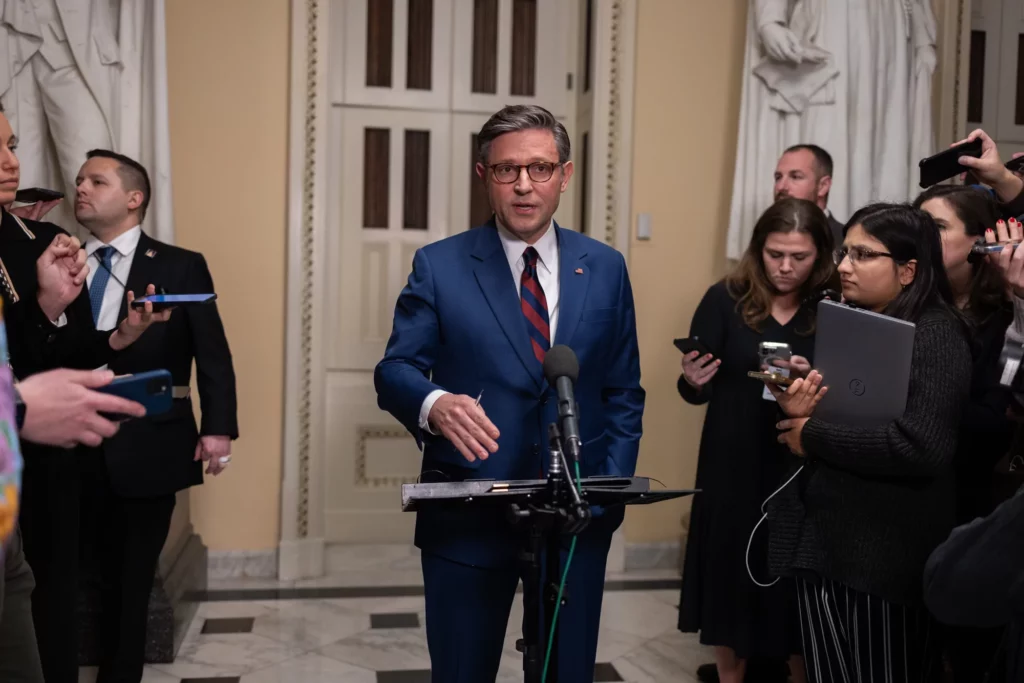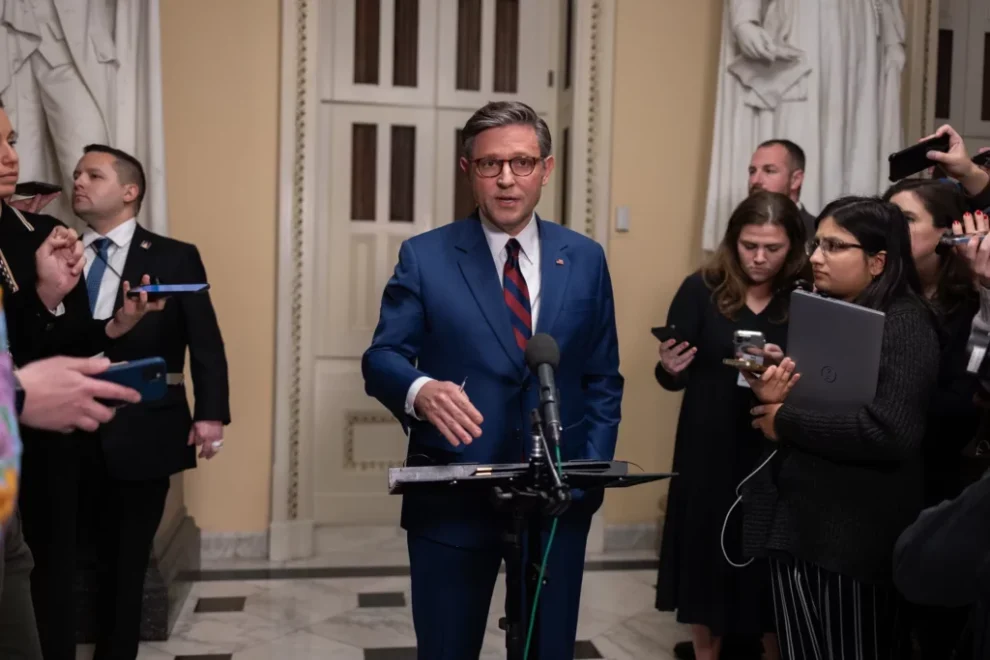The House overwhelmingly rejected a stopgap spending bill to extend government funding into next year, sending lawmakers back to the drawing board just one day before federal funding is scheduled to lapse for a slew of government agencies.
Lawmakers voted 174-235 against the funding package, failing to reach the two-thirds majority vote needed to pass the lower chamber after nearly all Democrats and 38 Republicans opposed the measure. The failed vote throws GOP leadership into limbo as it shuts down a proposal crafted specifically to get their own party members on board as well as win the approval of President-elect Donald Trump.
MEET THE NEW CONGRESS: THE HOUSE AND SENATE FRESHMEN ELECTED TO SERVE NEXT YEAR
It’s unclear how House leaders will start from scratch or if they’ll further amend the bill to win over hard-line conservatives who have vowed to oppose the legislation. Johnson has only a narrow margin of error to work with as he whips support after House Democrats have said they’d vote against any spending package other than the original continuing resolution negotiated between both parties in the House and Senate.

House GOP leaders unveiled the 116-page stopgap spending bill on Thursday afternoon after hours of negotiations to revise the original funding package proposed earlier this week. That CR was rejected by Trump and his closest allies over Democratic-backed provisions that were tucked into the bill in exchange for some Republican spending priorities.
The latest iteration would continue current funding levels for government agencies until March 14, adhering to the same timeline as the first proposal. The new bill would also keep the $110 billion in additional spending to go toward disaster aid and farmers’ assistance after a number of Republicans in the House and Senate threatened to withhold support if those were not included.
A major difference in the bill was the inclusion of language that would push the debt limit fight off for another two years, suspending the ceiling until January 2027 and relieving Trump of having to address it at the start of his second term.
That provision emerged as an 11th-hour demand from Trump, who told Republicans on Wednesday they should reject any CR package unless it includes a provision to raise the debt ceiling. However, that very same provision prompted a handful of Republicans to oppose the measure, vowing not to raise or suspend the debt ceiling without including offsets somewhere in the continuing resolution.
“More debt. More government,” Rep. Chip Roy (R-TX), a staunch opponent of raising the debt ceiling, said in a post on X. “Increasing the Credit Card $4 trillion with ZERO spending restraint and cuts. HARD NO.”
Republican leaders brought the proposed CR to the floor under suspension, meaning it would need two-thirds majority support to clear the lower chamber. Under that procedure, Johnson would have needed at least 70 Democrats to vote in favor of the legislation.
However, House Democratic leaders were quick to reject the new spending proposal, telling reporters they would vote against any CR package other than the original one. Only two Democrats, Reps. Marie Gluesenkamp Perez (D-WA) and Kathy Castor (D-FL), voted to approve the bill. Rep. Marcy Kaptur (D-OH) voted present.
“The Musk-Johnson proposal is not serious. It’s laughable,” Minority Leader Hakeem Jeffries (D-NY) said on Thursday. “Extreme MAGA Republicans are driving us to a government shutdown.”
CLICK HERE TO READ MORE FROM THE WASHINGTON EXAMINER
House Republican leaders must now return to square one to finalize a spending agreement before the government is scheduled to shut down at midnight on Friday. After that, federal funding for government agencies will lapse until an agreement is passed by Congress and signed by the president.
The defeat couldn’t come at a worse time for Johnson who faces a floor vote for speaker in two weeks with an even smaller majority in the new Congress. Trump only gave Johnson conditional support earlier Thursday and certain House Republicans doubted his leadership, with Rep. Thomas Massie (R-KY) announcing he won’t vote for him.
























